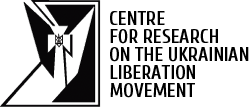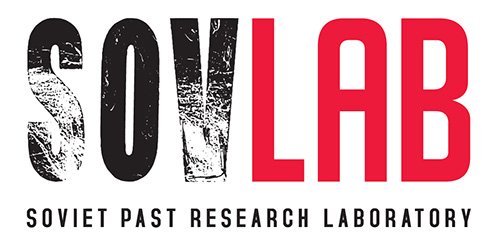
Vasyl
Stus
poet, dissident, translator, human rights defender
1938
|
1985
Vasyl Stus was born in Vinnytsya region. When he was two years old his parents took him to Donetsk, where he grew, studied and worked till moving to Kyiv.
In 1965 Stus was postgraduate at the Institute of Literature of the Academy of Sciences in Kyiv and besides his work on the dissertation he was composing poems that he planned to include in his first book. He also translated poems from several European languages. That year it was the first time when he came to the attention of the KGB. During the premiere of Serhiy Paradzhanov’s film “Shadows of Forgotten Ancestors” Ukrainian dissidents organized a protest against political repressions and Stus was one of the participants.


Extraordinary coincidence: that protest took place precisely 20 years before the day of Vasyl Stus’s death.
After that the publisher canceled the publication of Stus's book. During the life of the poet all of his books were either self-published or published abroad.
In the following years Vasyl Stus continued his dissident activity in particular sending open letters to the authority bodies criticizing state policy and defending political prisoners. There was no reply for the letters, but they were published by foreing media.
The Soviet regime was concerned with the opposition activity and spreading of self-published books in Ukraine and started a new wave of repression against the dissidents. As part of the Block operation in 1972 almost hundred of people were arrested including Vasyl Stus.
12 January 1972 poet’s house was searched by KGB workers who seized “anti-Soviet” and “libel” poems and articles.
The following examples of anti-regime activity can be found in the indictment:
«У вірші «Безпашпортний закріпачений…» він наклепницьки твердить:
«...Від трудоднів,і від кріпацтва
несе той син терпкий напій
Свободи, Рівенства ї Братства...
...Під сонцем наших конституцій
Земля щаслива ледь не трісне
прозовим духом революцій…»
“His hostile attitude to everything Soviet, to CPSU Stus reflected in his poem “A Bunch of Bandits…”, where he particularly writes:
«Своє вороже відношення до всього радянського, до КПРC, Стус виклав у вірші «Кубло бандитів…», де, зокрема, пише:
«Кубло бандитів, кегебістів, злодіїв і відставників у стольному засіли місті як партія більшовиків. Коли тюрма п'ятидесятиліття бучний справляє ювілей вже стільки назбиралось сміття, так труїть розуми єлей, що стерпу вже нема…»

“In the documents listed Stus demonstrates anti-Soviet position and denigrates socialist successes in our country, equates Soviet order to Hitler’s regime, claims the existence of supposedly national oppression of Ukrainians and violation of socialist legitimacy, strives to “prove” impossibility of building communist society in USSR.
In this documents by Stus Soviet people appear as rightless “slaves”, author slanders that as result of the revolution despotic power was established, that the dictatorship of the proletariat is grounded on the “will of the slaves”, that we allegedly build “police-ridden type” socialism, that “produces hypocrisy, deception, dishonesty and other factors accompanying slavery”
“The poem “Without Ivan's smile I cannot outlast…” is a malicious slander against the Soviet state, which is proven by the following quote:
«Тоді прости, прощай проклятий краю
Вітчизно боягузів і убивць»».
“For the period between 1963 and 1972 wrote and stored 14 anti-Soviet poems with slander against the Soviet political and social system, tarnished Soviet reality.
In his poems“Доволі! Ситий вже…”, “Безпашпортний, закріпачений в селі конає…”, “Опускаюсь - ніби піднімаюсь…” he demonstrates the life of Soviet collective farmers as life of “slaves and serfs”.



“Author of the poems vilifies events conducted by the Communist Party in commemoration of the 100th anniversary of the birth of Vladimir Ilyich Lenin, USSR is compared with concentration camps, and claims that socialism in our country is allegedly being constructed “on blood and bones”.
Stus makes slanderous conclusions on the national policy of the Communist Party of the Soviet Unity, claims that collectivization was supposedly “unsuccessful measure” and that spiritual culture of the nation in our country was supposedly “annihilated with tools never seen before in history”.
The next day after search and seizure the poet was detained suspected in “production and distribution of anti-Soviet and slanderous literature”
Except for texts Stus was accused of storing the poems of other dissidents, membership of the Public Committee in defence of Nina Strokata (arrested dissident), seditious speeches. Three of the witnesses who lived with him at a resort claimed that in his speeches Stus called UIA as heroes; persuaded that there is no freedom of press and movement, and unemployed in capitalist countries lived better than Soviet workers; and also told a joke about Lenin.
“According to the preliminary investigation basing on the nationalist convictions hostile to Soviet society in order to derail and weaken Soviet power during 1963-1972 Stus produced, stored and distributed anti-Soviet documents containing slanderous inventions that tarnish Soviet state and social structure. With this goal he conducted oral anti-Soviet agitation”.


While Stus did not disclaim his authorship of the texts he as well did not plead his guilt neither during the investigation nor in the court. He assured to be loyal to the regime and with his open letters he strived to grab attention of the authorities to the certain flaws in the literature process foremost, and his most critical poems are just drafts that do not reflect his position.


However, the KGB ordered their literary analysis of Stus’s works with necessary conclusions for the investigation. For example, one of the analysis was prepared by literary critic Arsen Kaspruk, this is his review of the book “The Winter Trees”:
“Even the most creative fantasizer biased against our reality wouldn’t be able to come up with more disgusting grunge and horrible hatred!
Vasyl Stus lived, studied, grew up. worked among Soviet people. From where do all this bile and hatred derive in this so-called “poet”?
No need to prove that the book by V.Stus is harmful with all its ideological bent, with all its essence.
Sane unprejudiced person is able to read it only with aversion, with scorn against the “poet” who slanders his own land and people this way.”
From the analysis prepared by literary critic Arsen Kaspruk requested by the KGB.


In his article “I Accuse” published in the Suchasnist magazine 1976, Stus mentioned Kaspruk as a KGB employed reviewer and also listed a range of Ukrainian scientists who made commissioned reviews on the publications of the Sixtiers.
The poet was sentenced to five years of imprisonment in a maximum security labour camp and three years of exile.
“Whereas Stus committed especially dangerous crime for which he is trialed for the first time, according to the article 25 of the Criminal Code of the Ukrainian SSR he is obliged to serve out his sentence in the strict regime correctional labour camps”





“For the last 8 months I was constantly convinced that my face is not real, my face is that disgusting one made up by the investigation. Court is like a plastic surgery on me.
I didn’t give consent for this surgery and this only expanded my guilt and their strive to make this surgery”.
Later the judges not only rejected Stus’s cassation appeal but also refused to return “instrument of crime”, the typewriter, to his wife Valentyna Popelyukh. Stus asked for this as his wife was left in a tough situation and was ill, so the sale of the typewriter could improve her finances.
Stus served the sentence at Mordovia and the exile at Kolyma. He continued his literature activity however almost everything written was seized. The repressive apparatus failed to “correct” Stus, on the contrary he turned into irreconcilable opponent of the regime. In 1976 while imprisoned Stus asked authorities to deprive his Soviet citizenship, however with no success.
“He is arrogant in conversations and doesn’t condemn his criminal past. He is always speaking to other convicted criminals who have a hostile attitude to the Soviet reality, and multiple times took part in unreasonable hunger-strikes. The convicted Vasyl Stus does not demonstrate any will to correct”
In 1979 Stus was released and returned to Kyiv, however not for long. Already the next year he was arrested and tried again for the same Article. Stus was defended by Viktor Medvedchuk, currently a famous pro-Russian politician who in 2020 tried to ban distribution of books with published details of the investigation (unsuccessfully).

This time the court sentenced the “habitual offender” to 10 years of camps and five years of exile. The poet didn’t return home, in 1985 he died in a disciplinary cell under unclear circumstances. Five years after in 1990 the Supreme Court of the Ukrainian SSR accepted that the verdict against Stus be thrown out due to a lack of a crime.
The Sectoral State Archive of the Security Service of Ukraine contains both 1972 and 1980 investigative cases of Vasyl Stus. First has 12 volumes, the second has 6 volumes. In 1990 part of the documents that had been seized during the search and lately stored as evidence (poems, drafts, letters) were given to his son Dmytro Stus. Vasyl Stus was part of the operational Block development. In this case in 1960-1970s the KGB gathered a vast array of the information from different sources (agents, perlustration of correspondence, eavesdropping records, surveillance) on the activity of opposition Ukrainian intelligence. Block case was destroyed together with lots of similar cases in the last years of the USSR. The data can be partially restored (particularly about Vasyl Stus) based on the messages of the KGB of Ukrainian SSR to the Central Committee of the Communist party of Ukraine stored in the fond 16 of theSectoral State Archive of the Security Service of Ukraine.






